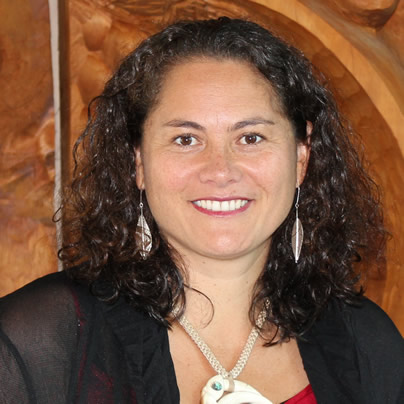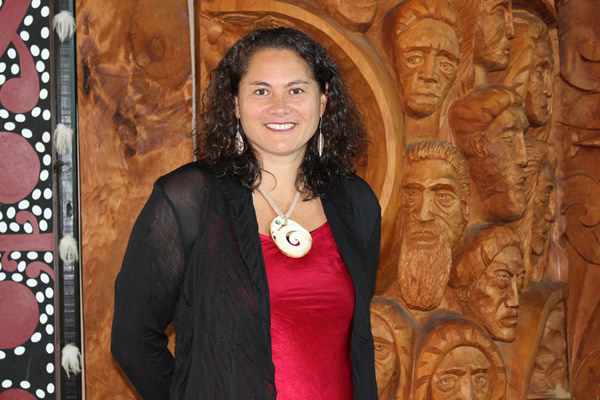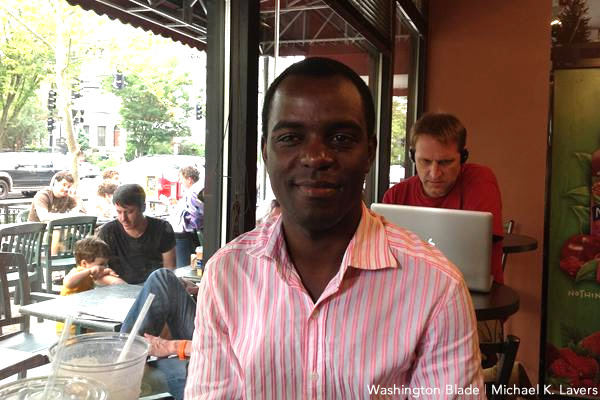News
Gay advocates outside U.S. applaud Supreme Court rulings
Activists say decisions send message to their country’s lawmakers

LGBT rights advocates around the world joined their American counterparts in celebrating the U.S. Supreme Court rulings that found a portion of the Defense of Marriage Act unconstitutional and struck down California’s Proposition 8.
“This is a fantastic outcome from the U.S. Supreme Court,” Kieran Rose, chair of the Gay and Lesbian Equality Network, an Irish LGBT rights group, said. “The ruling is a pivotal moment in the achievement of equality for lesbian and gay people in the U.S. and the decision will echo across the world.”
A commission charged with reforming the Irish constitution in April overwhelmingly approved a recommendation to extend marriage rights to same-sex couples. Deputy Prime Minister Eamon Gilmore last Friday said a referendum on the issue will take place in 2014.
The British House of Lords continues to debate a proposal that would extend marriage rights to same-sex couples in England and Wales.
Andy Wasley, spokesperson for Stonewall, an LGBT advocacy group in the U.K., told the Washington Blade on Thursday his organization hopes “we’ll be celebrating too within the next few weeks.”
“It’s heartening to see a more enlightened attitude towards the rights of 19 million lesbian, gay and bisexual Americans from the Supreme Court,” he said. “We’re delighted for those in California who can now dust off their wedding plans and look forward to their special day.”
Alex Alí Méndez Díaz, a lawyer who represented three same-sex couples in the Mexican state of Oaxaca whom local authorities denied marriage licenses in 2011 and 2012, agreed.
The Mexican Supreme Court in February released its ruling that found the Oaxacan law against same-sex marriage unconstitutional.
The three couples whom Méndez represented who petitioned the Mexican judicial system to ensure local authorities would protect their constitutional rights exchanged vows shortly after the country’s highest court announced its decision. Chihuahua and Baja California del Norte that includes the city of Tijuana are among the five other Mexican states in which same-sex marriage efforts are also underway.
“The decision from the (U.S. Supreme) Court is great news,” Méndez told the Blade. “Without a doubt it represents an advance and at the same time it is the realization of the international trend for equality and not to discriminate against the LGBTTTIQ community.”
Canada, Argentina, Iceland, France, Spain, Portugal, Belgium, the Netherlands, Norway, Denmark, Sweden and South Africa currently allow same-sex marriage.
Gays and lesbians will be able to tie the knot in Uruguay and New Zealand in August.
Brazil’s National Council of Justice last month said registrars cannot deny marriage licenses to same-sex couples. Gays and lesbians in neighboring Colombia last Thursday began to apply for civil marriage licenses, even though it remains unclear whether a 2011 ruling from the country’s highest court allows registrars and judges to issue them.
Louisa Wall, the New Zealand parliamentarian who introduced her country’s same-sex marriage bill that received final approval in April, told the Blade she is “incredibly proud” of LGBT rights advocates in the U.S. for “their persistent, progressive and inclusive pursuit of equality under the law.”
“I am also buoyed by the reaction to the decision by President Obama and his directive to officials to identify laws that this decision is relevant to and to expeditiously implement the necessary changes to guarantee legal equality for all couples,” Wall added.
Rodney Croome, national director of Australian Marriage Equality, said the Supreme Court decisions “sends a powerful message” to his country’s lawmakers on the issue.
“The U.S. Supreme Court’s decision sends a direct message to Australian politicians that our law against same-sex marriage violates basic principles of equality and fair treatment must be removed,” he said.
LGBT rights advocates in other countries in which same-sex couples cannot legally marry echoed Croome.
Three gay Chilean couples who had been denied marriage licenses last September filed a lawsuit with the Inter-American Court of Human Rights after the South American country’s Supreme Court ruled against them.
The Movement for Homosexual Integration and Liberation (Movilh,) a Chilean LGBT advocacy group, said in a statement on Wednesday the Supreme Court decisions “changed the political and cultural context in relation to same-sex marriage.” The organization added it feels the Inter-American Court of Human Rights will certainly take these changes into account when it considers the case of the three gay Chilean couples.
“The signal given today by the U.S. Supreme Court is that the days of homophobic laws like DOMA are numbered,” Movilh said. “This is a process that nobody can stop.”
Frank Mugisha, a Ugandan LGBT rights advocate, also welcomed the rulings.
He and other activists in Uganda and around the world have criticized the country’s lawmakers for supporting the so-called “Kill the Gays” bill that would impose the death penalty upon anyone convicted of repeated same-sex sexual acts.
Mugisha, whom then-Secretary of State Hillary Clinton honored last summer at the U.S. Embassy in Kampala, the Ugandan capital, said he feels the Supreme Court decisions “weakens the extreme religious conservatives” whom he categorized as exporting “hate to Africa and Uganda.”
“I celebrate every step towards equality, especially in the United States,” Mugisha told the Blade hours after President Obama applauded the rulings and responded to a question about the criminalization of homosexuality in Senegal during a press conference in the Senegalese capital with the country’s president. “Although our fight in Uganda is at the first step and not about marriage equality, due to the global village, equality for same-sex couples in the United States in certain ways adulterates homophobia in Uganda as Ugandans get used to gay people being normal globally.”
Virginia
Fellow lawmakers praise Adam Ebbin after Va. Senate farewell address
Gay state senator to take job in Spanberger administration

Gay Virginia state Sen. Adam Ebbin (D-Alexandria) delivered his farewell address on Feb. 16 in the Senate chamber in Richmond following his decision to resign from his role as a lawmaker to take a position as senior advisor to Democratic Gov. Abigail Spanberger.
Ebbin, whose resignation was to take effect Feb. 18, received a standing ovation from his fellow senators. Several of them spoke after Ebbin’s address to praise him for his service in the Virginia Senate from 2012 to 2026.
Ebbin first won election to the Virginia House of Delegates in 2003 as the first openly gay member of the General Assembly. He served in the House of Delegates from 2004 to 2012 before winning election to the Senate in 2011.
His Senate district includes Alexandria and parts of Arlington and Fairfax Counties.
“Serving in this body has been the greatest honor of my life,” Ebbin said in his farewell address. “Representing Northern Virginia in the General Assembly — my adopted home since 1989 — has been a responsibility I never took lightly,” he said.
“We are a 406-year-old institution,” he told his fellow lawmakers. “But, when I arrived, I had the distinct honor of being a ‘first’ in the General Assembly,” he said. “Being an openly gay elected official 22 years ago didn’t earn you book deals or talk show appearances — just a seat in a deep minority across the hall.”
Ebbin added, “Still, being out was a fact that felt both deeply personal and unavoidably public. I was proud, but I was also very aware that simply being here carried a responsibility larger than myself.”
Ebbin has been credited with playing a lead role in advocating for LGBTQ rights in the General Assembly as well as speaking out against anti-LGBTQ proposals that have surfaced during his tenure in the legislature.
In his speech he also pointed to other issues he has championed as a lawmaker; including strengthening education programs, expanding access to healthcare, safeguarding the environment, and legislation to help “stand up for working people.”
Among the LGBTQ rights legislation he pushed and mentioned in his speech was the Virginia Values Act of 2020, which bans discrimination based on sexual orientation and gender identity, among other categories.
“I’m particularly proud of our work ensuring Virginia modernized state law to protect LGBT people from discrimination in their daily lives, including in employment, housing, and public accommodations,” he said in his speech. “The Virginia Values Act of 2020 — my proudest achievement — established new protections for all Virginians,” he said.
“This law, the first of its kind in the South, passed with strong bipartisan support,” he stated. “And now — this November — after 20 years, Virginians will finally be able to vote on the Marriage Equality Amendment, which will protect the ability to marry who you love. It’s time for our state constitution to accurately reflect the law of the land.”
He was referring to a proposed state constitutional amendment approved by the General Assembly, but which must now go before voters in a referendum, to repeal a constitutional amendment approved by the legislators and voters in 2006 that bans same-sex marriage.
The U.S. Supreme Court’s Obergefell ruling legalizing same-sex marriage nationwide voided the Virginia same-sex marriage ban. But Ebbin and LGBTQ rights advocates have called on the General Assembly to take action to repeal the amendment in case the Supreme Court changes its ruling on the issue.
In his new job in the Spanberger administration Ebbin will become a senior advisor at the Virginia Cannabis Control Authority, which regulates policies regarding marijuana possession and distribution.
Ebbin was among the lead sponsors of legislation in 2020 to decriminalize possession of marijuana and of current pending legislation calling for legalizing possession.
“When I first entered the General Assembly, I saw too many lives upended by a simple marijuana charge — jobs lost, futures delayed, families hurt,” he said in his speech. “And for far too long, that harm was baked into our laws. That is no longer the case. The times have changed and so have our laws.”
Ebbin said he was also proud to have played some role in the changes in Virginia that now enable LGBTQ Virginians to serve in all levels of the state government “openly, authentically, and unapologetically.”
“I swore to myself that I wouldn’t leave until there was at least one more lesbian or gay General Assembly member,” Ebbin said in his speech. “But when I leave, I’m proud to say we will have an 8-member LGBTQ caucus.”
And he added, “And if anyone on the other side of the aisle wants to come out, you will be more than welcome — we’re still waiting on that first openly gay Republican.”
Africa
LGBTQ groups question US health agreements with African countries
Community could face further exclusion, government-sanctioned discrimination

Some queer rights organizations have expressed concern that health agreements between the U.S. and more than a dozen African countries will open the door to further exclusion and government-sanctioned discrimination.
The Trump-Vance administration since December has signed five-year agreements with Kenya, Uganda, and other nations that are worth a total of $1.6 billion.
Kenyan and Ugandan advocacy groups note the U.S. funding shift from NGO-led to a government-to-government model poses serious risks to LGBTQ people and other vulnerable populations in accessing healthcare due to existing discrimination based on sexual orientation.
Uganda Minority Shelters Consortium, Let’s Walk Uganda, the Kenya Human Rights Commission, and the Center for Minority Rights and Strategic Litigation note the agreements’ silence on vulnerable populations in accessing health care threatens their safety, privacy, and confidentiality.
“Many LGBTQ persons previously accessed HIV prevention and treatment, sexual and reproductive health services, mental health support, and psychosocial care through specialized clinics supported by NGOs and partners such as USAID (the U.S. Agency for International Development) or PEPFAR,” Let’s Walk Uganda Executive Director Edward Mutebi told Washington Blade.
He noted such specialized clinics, including the Let’s Walk Medical Center, are trusted facilities for providing stigma-free services by health workers who are sensitized to queer issues.
“Under this new model that sidelines NGOs and Drop-in Centers (DICs), there is a high-risk of these populations being forced into public health facilities where stigma, discrimination, and fear of exposure are prevalent to discourage our community members from seeking care altogether, leading to late testing and treatment,” Mutebi said. “For LGBTQ persons already living under criminalization and heightened surveillance, the loss of community-based service delivery is not just an access issue; it is a full-blown safety issue.”
Uganda Minority Shelters Consortium Coordinator John Grace said it is “deeply troubling” for the Trump-Vance administration to sideline NGOs, which he maintains have been “critical lifelines” for marginalized communities through their specialized clinics funded by donors like the Global Fund and USAID.
USAID officially shut down on July 1, 2025, after the White House dismantled it.
Grace notes the government-to-government funding framework will impact clinics that specifically serve the LGBTQ community, noting their patients will have to turn to public systems that remain inaccessible or hostile to them.
“UMSC is concerned that the Ugandan government, under this new arrangement, may lack both the political will and institutional safeguards to equitably serve these populations,” Grace said. “Without civil society participation, there is a real danger of invisibility and neglect.”
Grace also said the absence of accountability mechanisms or civil society oversight in the U.S. agreement, which Uganda signed on Dec. 10, would increase state-led discrimination in allocating health resources.
Center for Minority Rights and Strategic Litigation Legal Manager Michael Kioko notes the U.S. agreement with Kenya, signed on Dec. 4, will help sustain the country’s health sector, but it has a non-binding provision that allows Washington to withdraw or withhold the funding at any time without legal consequences. He said it could affect key health institutions’ long-term planning for specialized facilities for targeted populations whose independent operations are at stake from NGOS the new agreement sidelines.
“The agreement does not provide any assurance that so-called non-core services, such as PrEP, PEP, condoms, lubricants, targeted HIV testing, and STI prevention will be funded, especially given the Trump administration’s known opposition to funding these services for key populations,” Kioko said.
He adds the agreement’s exclusionary structure could further impact NGO-run clinics for key populations that have already closed or scaled down due to loss of the U.S. funding last year, thus reversing hard-won gains in HIV prevention and treatment.
“The socio-political implications are also dire,” Kioko said. “The agreement could be weaponized to incite discrimination and other LGBTQ-related health issues by anti-LGBTQ voices in the parliament who had called for the re-authorization of the U.S. funding (PEPFAR) funding in 2024, as a political mileage in the campaign trail.”
Even as the agreement fails to safeguard specialized facilities for key populations, the Kenya Human Rights Commission states continued access to healthcare services in public facilities will depend on the government’s commitment to maintain confidentiality, stigma-sensitive care, and targeted outreach mechanisms.
“The agreement requires compliance with applicable U.S. laws and foreign assistance policies, including restrictions such as the Helms Amendment on abortion funding,” the Kenya Human Rights Commission said in response to the Blade. “More broadly, funded activities must align with U.S. executive policy directives in force at the time. In the current U.S. context, where executive actions have narrowed gender recognition and reduced certain transgender protections, there is a foreseeable risk that funding priorities may shift.”
Just seven days after Kenya and the U.S. signed the agreement, the country’s High Court on Dec. 11 suspended its implementation after two petitioners challenged its legality on grounds that it was negotiated in secrecy, lacks proper parliamentary approval, and violates Kenyans’ data privacy when their medical information is shared with America.
The agreement the U.S. and Uganda signed has not been challenged.
European Union
European Parliament resolution backs ‘full recognition of trans women as women’
Non-binding document outlines UN Commission on the Status of Women priorities

The European Parliament on Feb. 12 adopted a transgender-inclusive resolution ahead of next month’s U.N. Commission on the Status of Women meeting.
The resolution, which details the European Union’s priorities ahead of the meeting, specifically calls for “the full recognition of trans women as women.”
“Their inclusion is essential for the effectiveness of any gender-equality and anti-violence policies; call for recognition of and equal access for trans women to protection and support services,” reads the resolution that Erin in the Morning details.
The resolution, which is non-binding, passed by a 340-141 vote margin. Sixty-eight MPs abstained.
The commission will meet in New York from March 10-21.
A sweeping executive order that President Donald Trump signed shortly after he took office for a second time on Jan. 20, 2025, said the federal government’s “official policy” is “there are only two genders, male and female.” The Trump-Vance administration has withdrawn the U.S. from the U.N. LGBTI Core Group, a group of U.N. member states that have pledged to support LGBTQ and intersex rights, and dozens of other U.N. entities.
-

 Health5 days ago
Health5 days agoCMS moves to expand HIV-positive organ transplants
-

 State Department4 days ago
State Department4 days agoFOIA lawsuit filed against State Department for PEPFAR records
-

 Opinions4 days ago
Opinions4 days agoTrans sports bans rooted in eugenics
-

 India4 days ago
India4 days agoTrans students not included in new India University Grants Commission equity rules


















